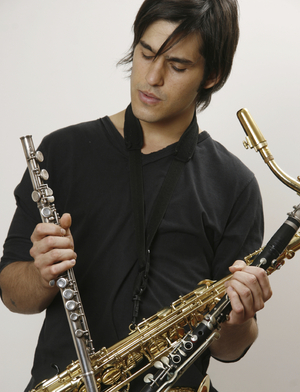These are the 5 things every ensemble performer is responsible for during a rehearsal:
1. Punctuality (be on time)
2. A pencil
3. A working instrument
4. A good attitude
5. Knowledge of the instrument
It is the responsibility of every performer in an ensemble to know his/her instrument. What are the tendencies of the pitch in each register? Which register projects more? Which less? Which register more clearly articulates? These are the questions every member of a performance ensemble should know the answer to. As a clarinetist, I know what my instrument can do. I know the upper register of the clarinet is very brilliant, almost brass like. I know the low register is very full and strong. Most importantly, I’m aware the middle register of the clarinet is its weakest register. This is one of the very unique qualities of the clarinet. Most instruments’ weakest registers are the low registers. The middle register just doesn’t project or articulate very well on the clarinet, and tends to be slightly sharp as well. When I encounter a staccato passage in a band piece, and it’s located in the middle register, an alarm goes off. I know I have to do a little more to get the articulation out of the instrument. If I encounter a passage marked forte, and it’s in the upper altissimo register of the clarinet, I know I don’t need to give much at all to produce a forte.
Ironically, even though the middle register (known as the throat tones) of the clarinet is the weakest register, it has the potential to be the most beautiful register. My old clarinet teacher was of this opinion, and I’ve grown to agree with him. When I was a student, like most other young clarinetists, I didn’t particularly enjoy the sound of the middle register. It was very stuffy and didn’t project or articulate as well as the high register. Now that I’m older, I very much enjoy playing solos within the range of the throat tones. In my opinion, the throat tones are the pitches of the clarinet which most closely resemble the sound of the human voice. I think Mozart and Brahms were two composers who were particularly aware of this.
When players in an orchestra or band are aware of these details it makes conductors much happier. If a conductor doesn’t have to stop as much to rehearse sections because his musicians have done their homework, rehearsals become much more efficient. This is what separates good ensembles from excellent ensembles. This is also why private lessons are so crucial. It’s impossible for a band director to know every detail about every instrument. A private teacher can easily cover these details with a student. I encourage all band and orchestral, and even choral directors to constantly remind their players of the importance of private instruction.
Joe Pinto, Clarinet Instructor at Hunterdon Academy of the Arts


COMMENTS